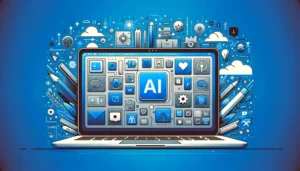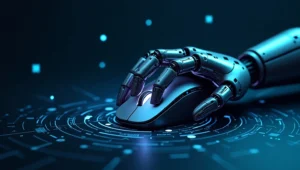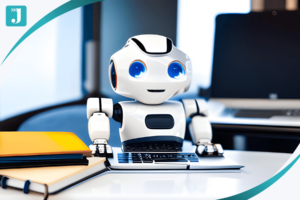Artificial intelligence is no longer just a future idea; it’s already having a huge impact on the modern workplace. AI is transforming businesses and redefining efficiency by automating routine tasks and helping people make decisions. Understanding how AI is changing the way we work and how individuals and businesses can adapt to the rapidly changing AI landscape is critical to staying ahead.
When AI starts working
AI technologies are becoming increasingly accessible and powerful, allowing businesses to leverage data and automation in ways that weren’t possible before. Some of the most important AI capabilities used every day in business are now being applied, such as machine learning, natural language processing, and computer vision. These technologies are helping businesses extract insights from vast amounts of data, automate tedious tasks, better communicate with customers, and even develop new products and services. As a result, AI is increasingly becoming an essential tool for businesses in industries ranging from healthcare and banking to manufacturing and marketing.
Routine tasks can be automated
One of the most striking impacts of artificial intelligence is the automation of tedious tasks. AI-powered systems are performing an increasing number of tasks, including data entry, data collection, invoice processing, and customer service inquiries. This technology reduces the chance of human error, freeing up employees to focus on the strategic, artistic, and social aspects of their work. For example, bots can answer customer questions 24/7, while AI scheduling assistants can quickly schedule meetings.
Harnessing AI insights to help people make smarter decisions
AI not only automates tasks, it also helps people make decisions by providing data-driven insights. Predictive analytics tools analyze historical data to predict trends, customer behavior, and potential risks. AI enables people to make faster and better decisions by providing managers and teams with actionable information. This skill is particularly crucial in rapidly evolving industries, where prompt responses can determine the difference between success and failure.
Changing skills and roles needed for work
When AI is applied to the workplace, it changes the way work gets done. Many routine tasks are being taken over by machines, while humans are being repurposed to solve more creative, critical, emotionally intelligent, and difficult problems. This means that employees need to learn new skills, such as using artificial intelligence (AI), communicating digitally, and understanding data. To prepare employees for these changing demands, companies need to invest in training and upskilling.
Improve communication and teamwork
Artificial intelligence tools are changing the way teams collaborate and communicate. For example, AI recording services can take instant minutes of meetings, and smart email assistants can help you organize emails and respond to them quickly. AI project management tools can also track progress, identify problems before they arise, and suggest how to best deploy resources to increase team efficiency. These new ideas help operations run more smoothly and reduce communication barriers.
How to overcome the challenges of implementing artificial intelligence
While artificial intelligence has its benefits, it is not easy to implement in practice. Concerns about job losses, data privacy, computer bias, and the cost of implementing systems can slow the adoption of AI. To address these issues, companies need to clarify the role of AI, emphasize its ethical development, and establish rules to protect employees’ interests. To successfully integrate AI, you need to build trust and engage your employees.
What are the best ways to stay informed about changes in artificial intelligence?
Employees and experts need to proactively adapt to the changes that AI brings. Lifelong learning is essential. To stay relevant, you can keep your skills up to date through online courses, workshops, and certifications focused on AI, data analytics, and digital tools. It is also important to develop soft skills such as imagination, leadership, emotional intelligence, and flexibility, as these properties
AI systems are open, honest and accountable. This eliminates bias and builds trust among stakeholders. Finally, for long-term success, it is important to create an innovative mindset across the company that encourages people to try new things, collaborate and be open to new technologies.
The next wave of AI jobs
In the future, AI will continue to change and become increasingly integrated into the way we work. New technologies such as advanced robotics, creative artificial intelligence and virtual reality will drive greater efficiency and new ways of working. In the future, it is very likely that humans and machines will work together in the workplace. Machines will perform routine and data-intensive tasks, while humans will provide innovation, insight and strategic monitoring. People who are open to these types of relationships have the greatest chance of success.
In summary
AI is fundamentally changing the way we work. Boring tasks will become redundant, decisions will become easier and the way work gets done will change. These changes are tough, but they also create opportunities for productivity and new ideas that didn’t exist before. If people and businesses stay vigilant, keep learning, and use AI tools with caution, they can not only keep up with the impact of AI, but thrive in the new workplace.




